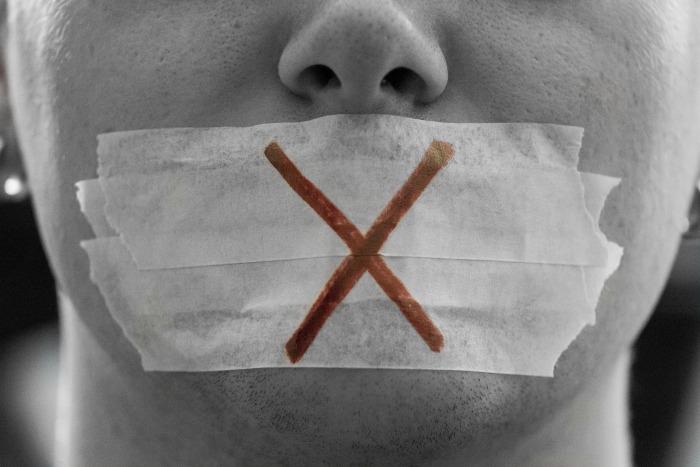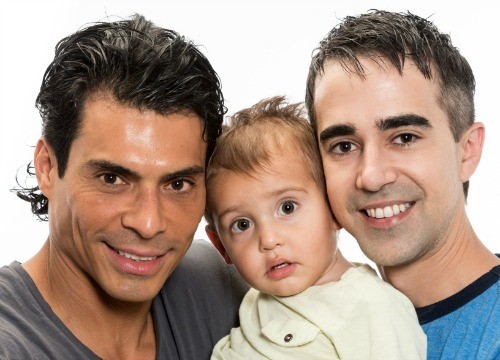
A visiting lecturer at the world renowned Catholic University of Louvain in Belgium has been dismissed for presenting arguments in a philosophy class that abortion is a form of murder. In an article he wrote and distributed to students, Mercier presented both philosophical and anecdotal arguments in favour of his firmly pro-life position and denounced a widely used term in French for abortion — IVG (“voluntary interruption of pregnancy”). “IVG is a euphemism that masks a lie. The truth is that abortion is the murder of an innocent person,” he wrote. Feminist groups complained that Mercier was presenting his “personal opinion in class. The University suspended Mercier’s two courses while his case was reviewed and later dismissed him without giving any reason.

A Swedish midwife is battling the denial of her career and livelihood over her refusal to participate in abortions. Eliinor Grimmark was training as a midwife in Sweden when she asked a hospital where she planned to work to accommodate her desire to not participate in abortions. Their response was to cancel her employment. Worse, the Government-stipend she was receiving to subsidise her studies was cut off. Other employment opportunities dried up and she was even offered counseling “to help her come to terms with abortion”. All this occurred despite there being an acute shortage of midwives in Sweden.
Eventually, Ms Grimmark moved to Norway to practice her profession there, where hospitals are happy to accommodate those with objections to abortion.
At the same time, she pursued a case against the Swedish authorities claiming religious discrimination and violation of her freedom of conscience. She lost that case in November 2015. This week, her appeal will be ruled upon by an appellate Court. Should she lose there, she intends to take her case to the European Court of Human Rights where the weight of precedent and law favours her argument.


The Government has offered its support for a referendum to reduce from four years to two the period a couple must be living apart before they may apply for divorce.
The referendum has been proposed by FG TD, Josepha Madigan, in a bill she brought before the Dáil yesterday. It also received support from Fianna Fáil, Sinn Féin, and others.
Minister of State, David Stanton, said the Government would be supporting the bill and would also like to see restrictions on divorce taken out of the constitution completely so that the regulation of divorce might be entirely a matter for legislation.

The National Health Service, Scotland, has published a transsexual guidance document encouraging schools to move away from the distinctions of ‘male’ and ‘female’. The 30-page policy document endorses ‘gender fluidity’, described as a “flexible range of gender expression which may change over time and sometimes as frequently as on a daily basis”. It also says that children can choose their gender, and that teachers should help a child to withhold their ‘gender choices’ from parents if necessary. The document says schools have an “opportunity to challenge typical gender stereotypes” of male and female.
Josie Appleton, head of civil liberties organisation the Manifesto Club, warned that the policy will sow division between parents and schools. She told the Mail on Sunday: “The idea that authorities have a policy document which essentially says schools have the licence over children’s identities, and keep that private from parents, is outrageous. “It’s going to completely estrange institutions from parents.”

Students who don’t use “gender-sensitive language” will be penalised marks on a course at the University of Hull. The policy was uncovered by The Sunday Times in a document which states: “Language is important and highly symbolic. In your essay, I thus expect you to be aware of the powerful and symbolic nature of language and use gender-sensitive formulations. Failure to use gender-sensitive language will impact your mark.”
A senior lecturer at the university said: “Should any student use language which is not deemed gender-neutral, they will be offered feedback as to why. Deduction of marks is taken on a case-by-case basis.” Responding, Frank Furedi, an emeritus professor of sociology, said: “This linguistic policing is used as a coercive tool to impose a conformist outlook.”
In December 2016 it was uncovered that students at the University of Oxford could be expelled if they fail to use ‘gender neutral’ pronouns. Under the university’s behaviour guidelines, students and staff are required to use the gender neutral pronouns ‘zie’ or ‘ey’ instead of ‘he’ or ‘she’ when referring to transsexual people. The guidelines state that “deliberately using the wrong name or pronoun in relation to a transgender person” may amount to harassment.

Sinn Féin President Gerry Adams has listed the introduction of same-sex marriage as a key issue the DUP must compromise on in order to form a Government in Northern Ireland. He said: “The DUP’s approach thus far has been to engage in a minimalist way on all of the key issues, including legacy issues – an Irish-language act, a bill of rights and marriage equality.”
MLAs have been asked to vote for the redefinition of marriage five times during the last five years. On each occasion the proposal has been stopped by the DUP.
Callum Webster, The Christian Institute’s Northern Ireland Officer, has said: “A small number of activists might be pushing for this change, but the people of Northern Ireland do not want to see such a fundamental building block of society redefined.”

Prime Minister Theresa May has condemned the UK’s National Trust for omitting the word “Easter” from its annual children’s egg hunt. “I’m not just a vicar’s daughter, I’m a member of the National Trust as well,” she told ITV. “I think the stance they have taken is absolutely ridiculous. I don’t know what they are thinking about frankly.” Church leaders criticised the National Trust for “airbrushing” Christianity out of its chocolate egg hunt, after a rebrand led to the renaming of the “Easter Egg Trail” as the “Great British Egg Hunt”. The archbishop of York said the decision to omit “Easter” from the egg hunt was “tantamount to spitting on the grave of [John] Cadbury” – the chocolate company’s founder.

A special Dáil and Seanad joint committee is being set up this week to consider the report of the Citizens’ Assembly on abortion and make recommendations to the Government on potential changes to the Constitution. The Citizens’ Assembly has been considering the issue of abortion for some time and is due to offer its report in June. The Oireachtas committee will then take up the Assembly’s report and begin its own deliberations. The committee may conduct hearings into the matter and seek input from medical and legal experts, as well as examining the position of other countries. They will be due to make their own report before the end of the year. At that point, the Government will have to decide which particular course of action to pursue and, should it decide to hold a referendum, will require the support of the Dáil to make that possible.

Fine Gael TD Josepha Madigan is proposing a referendum that would change the waiting period before someone could apply for a divorce. Currently, a couple must be “living apart” for four of the five previous years, though the Courts have interpreted this to allow for people living apart even while still sharing the same home. Ms Madigan is proposing to cut this period of ‘living apart’ in half to a mere two years. Deputy Madigan who is also a solicitor specialising in divorce and family law will bring a Private Member’s Bill to the floor of the Dáil on Thursday. If the Bill passes the Dáil and Seanad, it would provide for a referendum to amend the Constitution, changing the article inserted in 1995 that introduced divorce for the first time in the Republic.